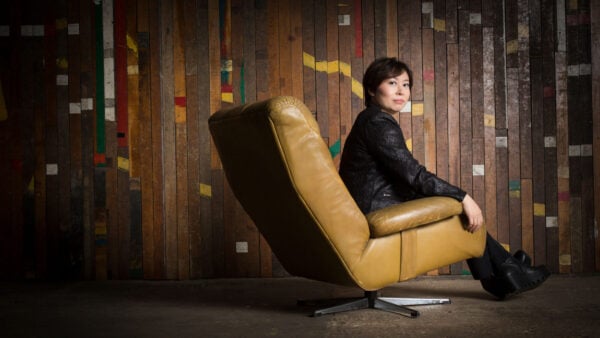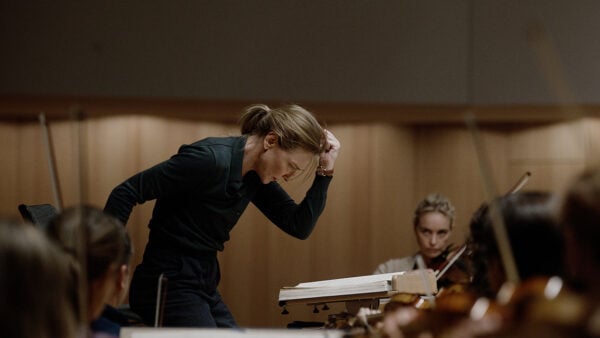
Guitarist Miloš (Photo: IMG Artists)
Miloš has received international acclaim for sharing the vast capabilities of the guitar, from his exploration of Spanish classics to his re-imagining of popular hits by The Beatles. Yet shortly after the debut of his Beatles album in 2016, the Montenegro-born and London-based guitarist experienced not only a hand injury but also intense burnout.
Miloš decided to step away from music in order to recover, a period that he calls his “silence.” This time for reflection inspired his new Decca Classics album: Sound of Silence, which was previously featured in WFMT’s New Releases. In this recording, Miloš presents music that he turned to or was inspired by during his recovery, from soothing standards by Francisco Tárrega to entrancing tracks by Radiohead.
In a recent interview with WFMT, Miloš shared what he learned from his silent period, his new musical discoveries, and his advice for young artists.
WFMT: Playing music is both a physical and mental act, and I think we forget that sometimes. What have you learned from the period in your life when you were not playing the guitar?
Miloš: What we do every day and the process of creating music and finding the sound is an all-encompassing process… Music comes from a very unspecific place. It’s not about how your fingers are moving or your practice routine. It’s actually much more metaphysical than that, it’s more spiritual than that. I think that whenever we have a deficiency on that level, that’s when we are in the danger zone, and we start developing issues.
When I talk about the period of not playing, I personally never describe it as an injury. An injury, to me, sounds as if a piece of a machine is broken. I always like to think about it as a sort of silence. Yes, it was physical, my hand was very tight and hurting, but it was much more than that. It was probably the most important period of my life in terms of my musical and personal education.
That’s why with this album I was very transparent and open about that. I dedicated the whole album to that period, because I feel that [both] period[s], great music making and none at all, are of equal importance. I didn’t want to hide that from my audience – I wanted that to be a part of my journey and story. As a musician, you have an incredible gift to share something that is beyond words, not a mere product, but actual emotions. Emotions don’t come cheaply; they come as the result of a very intense process. That period of my life was certainly an intense process.
WFMT: What music did you turn to during this silent period?
Miloš: In this period, I was listening to anything but the classical guitar. I was listening to so much music in different genres and styles – that reflects very clearly on Sound of Silence. When I felt stronger and started to play the guitar again, my main goal was to be able to play the pieces that made me happy, with incredible memories onstage and offstage. But in order to play such complicated pieces, I turned to some books like the Tárrega collections and Leo Brouwer pieces. A few that appear on the album are an example of that, like the amazing two pieces by Tárrega called Endecha and Oremus. I think they are simple pieces, but the depth of music is extraordinary.
If you are open enough, and if you are creative enough, it’s just amazing how far and how close you can go with the repertoire. It all becomes one. It all becomes a part of the same thing. I wanted to challenge the boundaries a little bit with this album because after not playing, I didn’t want to be limited again in any way. I wanted to explore the whole breadth of music and to see how we can create something that belongs to a more popular culture, without losing our identity. It’s a very personal reflection of that time, which is now long behind me.
WFMT: In exploring new sounds, you also collaborate with saxophonist Jess Gillam on this album. Guitar and saxophone are versatile instruments, yet we don’t see this combination that often. How did your collaboration with Jess begin?
Miloš: Jess and I have known each other for a long time. She is pretty much my little sister. When she recorded her first album for Decca, she asked me to play a piece with her. And we decided to play the John Dowland piece “Flow My Tears,” [originally] for voice and lute, because she always plays as if she were singing herself. We turned it around, and we loved it. I think in the studio, [guitar and saxophone] work incredibly well because the levels are easier to adjust than in a live situation, which can be challenging because the saxophone is a louder and more direct instrument than classical guitar. With a tiny bit of amplification, you can make it work. It’s a very unlikely combination, but it just works.
WFMT: You’ve explored many musical genres in your own career. What’s your advice for a young musician in developing a career as an artist today?
Miloš: My advice to young artists is to never compare themselves to anyone else and to know that there is nobody in this world that can play or sing like they can. Being a musician is such an individual and wonderful gift. If you believe in that gift that you are given, and you work really hard to be the best musician you can be, then you should never focus and mirror the success of others.
Never be scared of something that you don’t know, because curiosity is one of the most important qualities in every successful musician. I speak from experience here, because when I was a student at the Royal Academy of Music, I was brought up in this extremely classical guitar tradition. My whole world revolved around the most important works in the guitar repertoire, like the amazing pieces of Benjamin Britten, Alberto Ginastera, Michael Tippett, Dowland, and Bach.
When we were working on my first album, I just enjoyed the conversations with my producers and the label, because suddenly it felt like I could shake it all up… If you live in a bubble of whatever instrument you are playing, it can be very limiting. When that bubble bursts, it’s like you’re seeing the whole world in full color for the first time.
Sound of Silence, Miloš’s new album, is available on Decca Classics. For more information, visit deccaclassics.com.
This interview has been lightly edited for clarity.






